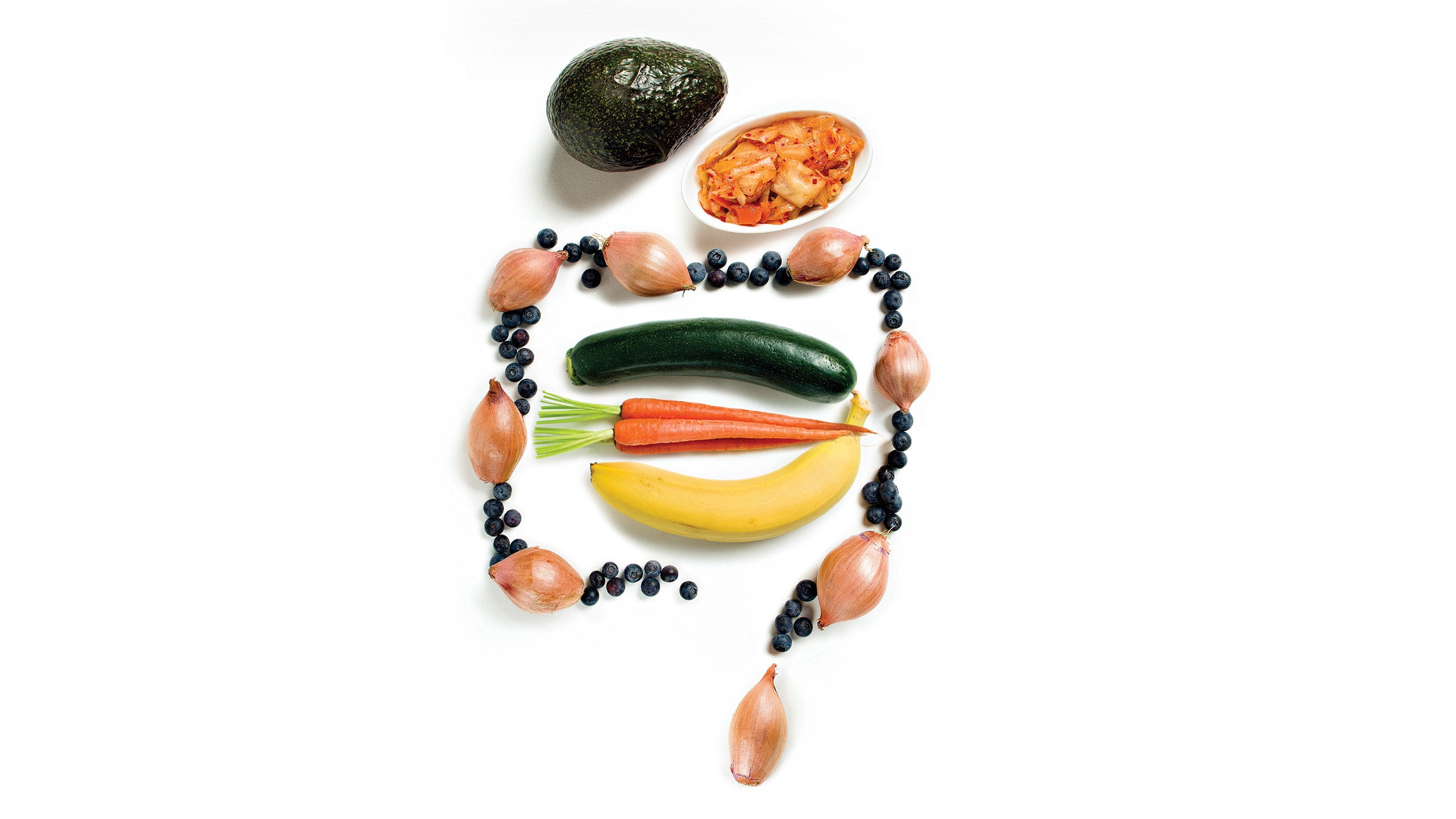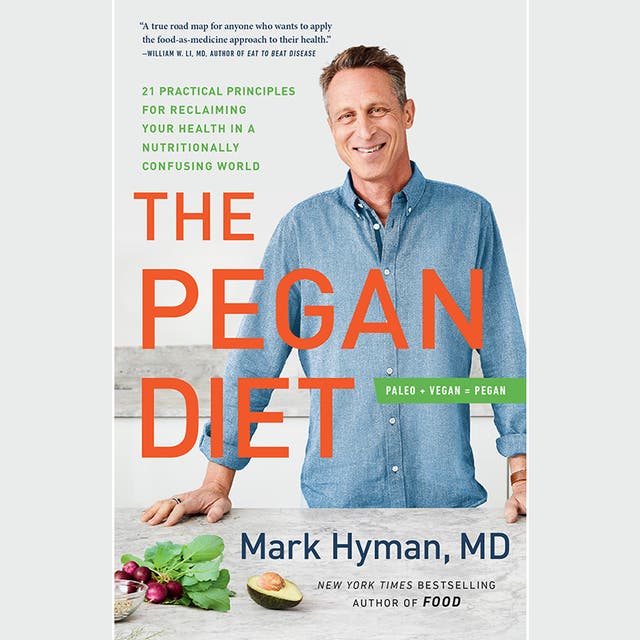The Gut-Health Nutrient You Don’t Know About (But Should)

Gut health has been a hot topic for years, and many of us diligently pop probiotics and munch on sauerkraut and kimchi – but Dr. Mark Hyman, author of The Pegan Diet: 21 Practical Principles for Reclaiming Your Health in a Nutritionally Confusing World (Little, Brown and Company), says there is an additional gut-supportive nutrient that most people don’t even know about.

In his new book, Dr. Hyman sets the record straight on a number of need-to-know health topics from whether we should be eating dairy to the benefits and drawbacks of alcohol and coffee.
One of the core principles from his book that we find most interesting, though, is to eat for gut health. Why? Dr. Hyman writes that our microbiome, the 100 trillion microbes that live inside each one of us including bacteria and fungi, is likely the most important regulator of our health. That’s a bold statement, and probably means that we should all be paying more attention to the state of our gut. After all, an imbalanced microbiome drives inflammation, according to Dr. Hyman, which is a factor in almost all chronic diseases and obesity.
So by now, you probably know how important gut health is, but you may not have heard that studies are pointing to a new type of nutrient to support it: polyphenols, such as those found in green tea, pomegranate and berries.
“Fascinating new research is showing us that polyphenols play a much more powerful role in our health than we could have ever imagined,” explained Dr. Hyman. “It turns out that our good gut bugs need polyphenols to thrive. So next time you’re sipping on green tea and eating blueberries, remember that you’re not only giving yourself an antioxidant boost, you’re also helping out your friendly bacteria.”
To get more specific, Dr. Hyman says there are certain gut bugs that are markers of good gut health, and one to have on your radar is called Akkermansia. In fact, Dr. Hyman saw the importance of this strain when he became sick with a bacterial infection and ulcerative colitis. “When I got sick a few years back, I really focused on building up my Akkermansia levels which were non-existent,” he said. “We are even learning that certain cancer therapies work better when you have higher levels of certain gut bacteria such as Akkermansia. The way to feed it is with polyphenols such as green tea, pomegranate and cranberries. Hopefully soon, there will be Akkermansia probiotics.”
Thankfully, we don’t have to wait for those probiotics to hit the market, because we can get plenty of polyphenols through foods – think leafy green vegetables, blackberries, peppers and dark chocolate.
And while we all should be increasing our polyphenol intake, we should continue to stick to a well-rounded gut health plan that includes plenty of prebiotic foods (such as garlic, figs, and artichokes) and probiotic foods (such as kimchi, miso and coconut yogurt).
Dr. Hyman does recommend supplements depending on the individual, but food always comes first, “The good news is that you can get all of these things from food — you don’t have to use supplements,” he said.
Related: